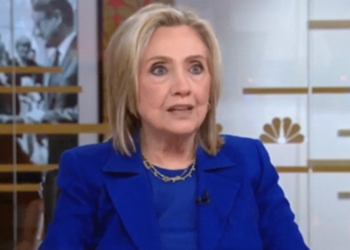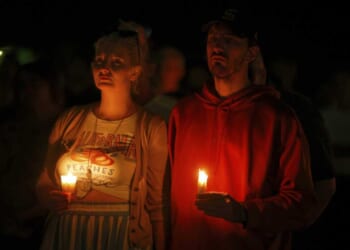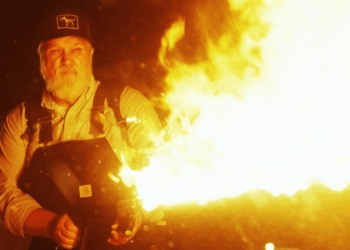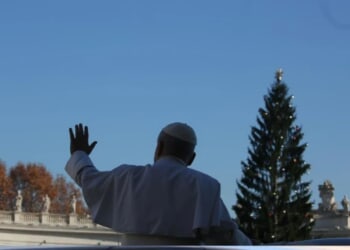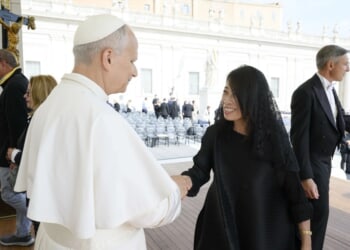When the history of Europe’s strategic decline is written, it will not begin with the war in Ukraine — but with Germany’s fatal misreading of Russia.
For 20 years, Berlin pursued energy interdependence as a substitute for deterrence. Former Chancellor Gerhard Schröder’s embrace of Vladimir Putin — from Nord Stream I to his later work as a Gazprom lobbyist — was not an accident of policy, but a symptom of moral vanity. Germany believed it could buy peace while outsourcing power.
The past clearly shows how a self-satisfied political elite ignored every warning that Russia was preparing for war. Instead of reading intelligence reports, Berlin read gas contracts. Instead of investing in defense, the EU invested in dependency. (RELATED: Daily Caller Editor, Never-Trumper Go At It Over Trump’s Diplomacy)
The result was not only national vulnerability, but a continental one — a Europe built on illusions, politely shocked each time Moscow proved reality still rules.
Trump’s Realism Against Europe’s Wishful Thinking
Donald J. Trump, derided in European salons as crude and transactional, was in fact the first Western leader to recognize that deterrence must be felt before it can be believed. His worldview is built on leverage, strength, and the management of perception. Critics call it “brinkmanship.”
In truth, it’s actual politics stripped of moral disguise.
Trump’s instinct was simple but strategically sound: stop funding your adversary, start defending yourself. At NATO summits, he forced European leaders to confront an uncomfortable arithmetic — that the alliance’s security umbrella is paid for mostly by American taxpayers, while Europe moralizes from beneath it.
He was right. Europe’s prosperity rests on American power, and its “self-elected” pacifism is financed by American defense budgets.
The Gaza Proof: Diplomacy Through Power
Nowhere was this philosophy more evident than in the Gaza and Abraham Accords — the first genuine realignment in the Middle East in decades, backed by credible action in Iran. For 40 years, conventional diplomacy sought reconciliation through moral appeals. Trump achieved it through pressure, incentives, and sequencing: he gave each actor something to gain, but only if they moved toward peace. He proved that even hardened adversaries can cooperate when Washington speaks the language of strength rather than sentiment. That same logic applies to Moscow. The Kremlin does not respect empathy; it respects leverage.
A Trump doctrine built on American dominance, controlled escalation, and clear economic leverage would give Russia two choices: negotiate or deteriorate.
From Schröder’s Failure To Trump’s Opportunity
Schröder’s Germany thought engagement could tame autocracy. Obama’s Washington thought “resets” could modernize it. Biden’s White House believes incremental aid can contain it. All three misread Putin — mistaking aggression for insecurity and coercion for negotiation.
Trump understood the opposite: power is persuasion. He would not talk Moscow into restraint; he would box it into compliance.
A second Trump administration will likely restore hard leverage to Western diplomacy — tightening sanctions enforcement, expanding U.S. LNG dominance, and re-arming NATO’s eastern flank while forcing European allies to match American spending. It would be The Art of the Deal translated into deterrence.
The European Problem: Comfort, Dependency, And Denial
Yet even as Russian missiles fall on Ukrainian cities, much of Europe continues to act as if moral posturing were a substitute for policy. EU leaders still lecture Washington about tone while depending on it for defense, energy stability, and technological security. Their politics — shaped by quasi-socialist economics and bureaucratic caution — treat security as a public good provided by someone else.
European leaders should always remember it was the United States that rebuilt their nations from the rubble of 1945, contained the Soviet Union, protected Berlin during the blockade, and financed the prosperity they now take for granted. The Marshall Plan, NATO, and the nuclear umbrella were not European gifts to America — they were American gifts to Europe.
Instead of bashing the U.S. president or dismissing American assertiveness as “cowboy diplomacy,” Europe’s weak leaders should realign behind Washington’s strategy. The free world they inhabit exists only because the United States created and sustained it — and because presidents, from Truman to Reagan to Trump, were willing to bear the burden others evaded.
Power, Not Piety, Preserves Peace
Europe’s descent into moral comfort and strategic paralysis is not inevitable — but reversing it requires leadership unafraid to offend polite opinion. Trump’s critics may scorn his tone, but history will measure his results.
The West needs less virtue signaling and more deterrence. It requires fewer lectures on “European values” and more commitments to shared defense. Above all, it needs to rediscover the truth that Germany forgot and America once taught the world: peace is not preserved by consensus, but by courage.
Donald J. Trump — with his unapologetic realism and his instinct for power — may be the only leader willing to prove it again.
Thomas P. Limberger is an accomplished international entrepreneur, investor, and business leader with a distinguished record of transforming and growing companies across industries. He has led organizations in energy, technology, industrial manufacturing, and private equity, building a reputation for strategic innovation, operational excellence, and value creation.
The views and opinions expressed in this commentary are those of the author and do not reflect the official position of the Daily Caller News Foundation.
All content created by the Daily Caller News Foundation, an independent and nonpartisan newswire service, is available without charge to any legitimate news publisher that can provide a large audience. All republished articles must include our logo, our reporter’s byline and their DCNF affiliation. For any questions about our guidelines or partnering with us, please contact licensing@dailycallernewsfoundation.org.

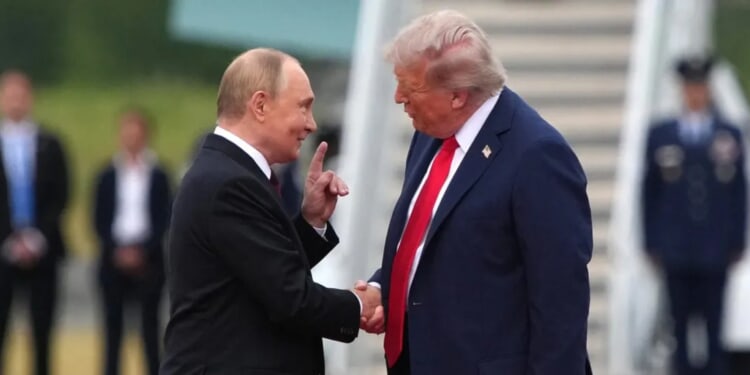
![Scott Bessent Explains The Big Picture Everyone is Missing During the Shutdown [WATCH]](https://www.right2024.com/wp-content/uploads/2025/11/Scott-Bessent-Explains-The-Big-Picture-Everyone-is-Missing-During-350x250.jpg)





![Maine Activists Strip at School Board Meeting to Protest Transgender Policy [WATCH]](https://www.right2024.com/wp-content/uploads/2025/10/Maine-Activists-Strip-at-School-Board-Meeting-to-Protest-Transgender-350x250.jpg)

